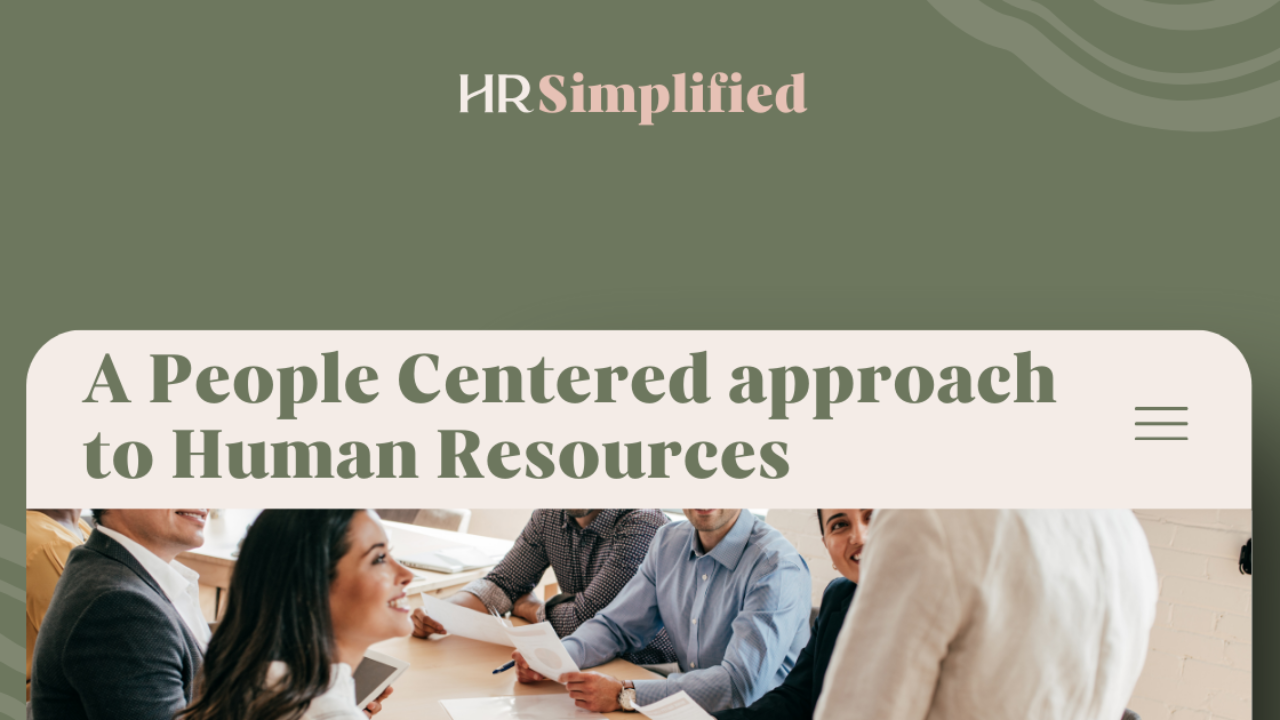A People Centered approach to Human Resources
Oct 31, 2023
In today's rapidly evolving business landscape, the traditional role of Human Resources (HR) has been undergoing a significant transformation in the past few years. The further shift from a transactional HR model to a more strategic, employee-centric approach is becoming increasingly crucial to navigating our way out of a pandemic. This paradigm shift is all about embracing a people-centered approach to HR, a concept that places the individual at the core of HR practices.
What is a People-Centered Approach to HR?
A people-centered approach to HR is a fundamental shift in how organisations view and interact with their most valuable asset: their employees. It acknowledges that employees are not merely cogs in the corporate machinery but unique individuals with their own aspirations, motivations, and needs. In this approach, the HR function is no longer seen as a separate entity but an integral part of the organisation's overall strategy.
From Transactional to Strategic
When I studies HR 20 years ago HR departments were often perceived as administrative entities responsible for handling paperwork, managing payroll, and addressing compliance issues. This transactional model was necessary but limited in its scope. It focused on the mechanical aspects of HR and often overlooked the human side of the workforce.
With the rise of a people-centered approach, HR has evolved into a strategic partner that aligns its functions with the broader goals of the business. It moves beyond the administrative tasks to play a pivotal role in talent management, organisational development, and culture building. Instead of being viewed as a cost center, HR becomes an invaluable asset that directly contributes to a company's success and growth.
The Individual at the Core
At the heart of a people-centered approach to HR is the recognition that each employee is a unique individual. This perspective is built on the understanding that when businesses prioritise their employees' well-being, growth, and job satisfaction, it leads to improved performance, retention, and overall success.
In a people-centered HR approach, HR practices revolve around:
1. Personalization: Recognising that one size does not fit all. HR policies and benefits are tailored to individual needs and preferences.
2. Employee Development: Fostering an environment that encourages continuous learning and growth. HR supports employees in their career journeys.
3. Work-Life Balance: Promoting a healthy balance between work and personal life. Flexible schedules and remote work options are offered to accommodate individual needs.
4. Empowerment: Encouraging employees to have a voice in the businesses direction, express their ideas, and contribute to decision-making processes.
5. Mentorship and Feedback: Providing regular feedback, mentoring, and coaching to help employees thrive in their roles.
6. Diversity and Inclusion: Creating an inclusive environment where employees from all backgrounds feel valued and respected.
I as a HR practitioner have always placed the individual at the core of HR practices allowing the businesses that I work with to create a more engaged and satisfied workforce. This not only benefits employees but also leads to improved productivity, innovation, and ultimately, business success.
The shift to a people centered approach to HR represents a fundamental shift in how organizations view and engage with their employees. It is a transition from a transactional model to a strategic, employee-centric one that recognises the unique value of each individual in the workplace. This approach not only enhances employee satisfaction and engagement but also plays a pivotal role in an organization's success. In our next few weeks I want to delve into the specific ways a people-centered HR approach fosters employee engagement, nurtures leadership development, and promotes workplace well-being. So stick around for the next installments.

